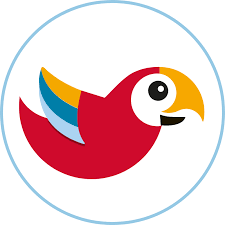I currently find myself in a rare situation where I am not in desperate need of new team members. This is especially crazy when you consider that I work for one of the fastest growing online retailers in the country. I suspect this will be a very short lived situation. It struck me though that for the first time since I’ve been in a management role I could actually get ahead of the game and preemptively screen people. This would enable me to be as picky as I want. I really believe in the idea that the people and the culture make all the difference within a company, but most of us pay lip service to that and then hire whoever can basically do the job. We don’t have the patience to wait only for “rock stars”. So this blog post is just my thoughts on how I’m going to design this recruiting process, particularly for our contact center.
1. Get Applications
This is of course the hardest part of the whole thing. If you can get awesome people to apply then you can hire said awesome people and the problem is solved. So how the heck do you find them? Here is what we have going right now:
- We have a career page which no one ever applies through.
- We have listings on Indeed which gets 10-20 applications a day, but they are not high quality.
- We have ads in local college job boards, which no one ever applies to.
- We encourage the team to send us referrals, which hasn’t really picked up any steam yet.
- We pay competitively and have the best benefits out of any small business I’ve ever seen.
These are the traditional methods of recruiting and I’m finding they are not enough. So what else should I try? Here are some ideas:
- Put our name on the map in the local scene by applying for a variety of awards. Our numbers easily qualify us for some serious growth awards so I’ve been nominating us for everything I can find.
- Sponsor local events. I haven’t put too much thought into this but getting involved in community events is a good long term play. I’m not sure that sort of thing makes sense at our current size, but I need to keep an eye out and keep that option in mind.
- Join or host meetups. I’m already trying to break into the Dallas eCommerce scene which from what I can tell is not that hopping, and I didn’t find anything about precious metals on meetup.com, but maybe I should start these up and actually host them. I’m not sure these would actually attract the people though that would be looking for contact center gigs. Its hard to say though because if they are interested in the subject this might be right up their alley!
- Make the company such a great place to work that the employees are convincing all of their smartest friends to come and apply. This is a subject for another post entirely, but ideally we’d make working with us so desirable that the new employees came to us organically.
2. Email Interview
I tend to set the bar pretty low for people that I will contact after reviewing a resume. After all does anyone actually believe that a resume is a true indication of the person’s skill level anymore? Maybe I’m too hard on resumes, but a persons attitude, ability to communicate, and emotional intelligence is much more important to me than their prior experience written in mind numbing corporate speak. This initial email interview is where I weed out anyone that I don’t want to invest time in interviewing. It’s stunning how many people will already expose themselves to be a bad fit in this initial step. What I do is just send out an email with 5 very basic questions (dream job, things you don’t like in jobs, why are you leaving your job, etc.). All I’m looking for here is that they can respond to these questions with some basic communication skills that might be expected of you in customer service. Now I’m no grammar nazi (which I’m sure you know if you’re reading this blog), but you need to at least capitalize your sentences and put periods at the end of them to make it past this stage. I kid you not, 7 of eight replies I received TODAY did not meet that very basic requirement.
3. Phone Interview
If I get a decent email response I schedule a 15-20 minute phone interview. This is again a low time commitment where I just ask the candidate to talk me through their career thus far and what skills they learned, etc. I don’t tend to ask that many questions on this call because I’m just hoping to get the person to talk as much as possible. It’s always surprising to me though how some people can’t talk for more than 5 minutes about their entire school and work career thus far. So in some cases I do have to push a little more to get them going. This is again mostly an attempt to see how enthusiastic they are and how they communicate over the phone, but this also a chance to allow them to explain their background better than a resume and cover letter will.
4. In Person Interview
If the phone interview goes well then I will finally ask the person to come in for an in person interview. Here I typically take 45 minutes or so unless the interview gets seriously derailed and there’s no chance this is going to be the right fit. I’ll ask for the candidate to review some of the jobs he or she had again and then present various scenarios for the candidate to walk me through. I’ll also try to dig in a little more to the candidates personality and ability to work well with others at this time. Finally I might try to scare the candidate a little in the sense that I don’t want them to have the impression that this is an easy job. I’ll explain the background of the company and review everything that is expected, and ensure the candidate knows we have very high standards for performance and behavior within the company. I’ll then gauge the reaction of the candidate and then let them head home for the day regardless of how it went.
5. DiSC Test
This is something new I haven’t tried yet. I plan to ask candidates at this stage to fill out a personality test. This won’t be a deal-breaker or anything, but it might help in the final decision. For example, a candidate that scored a high D for dominance might not be best suited for a role where they are expected to patiently serve customers all day. They might be better off in a hard driving sales role for example, so when it comes down to the wire this will potentially be a useful tool in deciding.
5. HR Interview
I actually work in a company that has a human resources person now! So we’ll call the candidates I liked back in to meet with this person and they will need to meet the criteria set by her as well. This will get me another opinion and additional insights about the person that I didn’t catch.
6. Supervisor Interview
Immediately after the HR interview the supervisor(s) will also conduct an interview. These are ultimately the people that will be responsible for the candidates performance so it’s super important that they are enthusiastic about the candidate and really want to bring them on. This is another step I’ve skipped in the past or given less weight to, but I think it was a big mistake to do that. Managers need to feel ownership of their team and you need to also hold them accountable for their team. This is difficult to do if you are forcing employees on them that they don’t want to deal with.
So there it is, my initial blueprint for hiring amazing people when I have the time to get it right. Ultimately I’m just looking to give the candidate as many opportunities as possible to expose themselves as a bad fit. I’m sure this will be tweaked over time and I hope I actually add more steps because I can afford to filter further. As I mentioned the first step will be the most crucial to get right, but at least in the meantime the team will get some serious experience conducting interviews!
If you have ANY input on ways to make this better please post in the comments. This is such a crucial part of a growing business that I’d welcome any suggestions no matter how trivial. How would/does your strategy differ?




